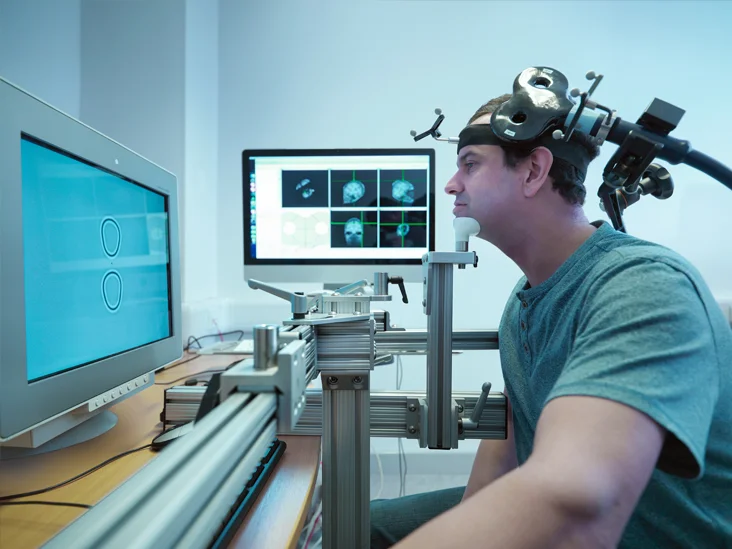Conditions Transcranial Magnetic Stimulation (TMS) Can Treat

Step into a world where the boundaries of conventional treatment are shattered, and revolutionary therapy awaits your discovery. Imagine a treatment that can gently reach the depths of your mind, precisely targeting the intricate circuitry of your brain. At Psychiatric Consultants of Atlanta, you can access the Transcranial Magnetic Stimulation (TMS) treatment, where the power of magnetic waves holds the key to transforming lives.
Transcranial Magnetic Stimulation (TMS) operates on the principle of electromagnetic induction to influence the activity of specific regions in the brain. TMS can increase or decrease brain activity by stimulating or inhibiting the targeted area, depending on the desired therapeutic outcome.
Medical conditions transcranial magnetic stimulation can treat
Here are some of the medical conditions:
Major depressive disorder (MDD)
Transcranial Magnetic Stimulation has been extensively studied and approved for treating major depressive disorder (MDD). In this condition, repetitive TMS pulses are delivered to the left prefrontal cortex, stimulating neuronal activity and promoting the release of neurotransmitters involved in mood regulation. TMS for MDD has shown significant efficacy, particularly for individuals who have not responded well to traditional antidepressant medications. It offers a non-invasive alternative that can alleviate depressive symptoms, improve mood, and enhance overall quality of life.
Bipolar disorder
Bipolar disorder is a mental condition marked by alternating episodes of sadness and mania. TMS has shown promise in treating bipolar disorder symptoms. In Bipolar Depression, TMS can effectively target depressive symptoms and provide relief. However, it is vital to carefully assess the patient’s specific bipolar subtype and tailor the treatment approach accordingly to ensure optimal outcomes and prevent potential manic episodes.
Anxiety disorders
Anxiety disorders, such as generalized anxiety disorder (GAD), social anxiety disorder (SAD), and post-traumatic stress disorder (PTSD), can also be targeted by TMS. TMS can modulate neuronal activity and help alleviate symptoms by stimulating specific brain regions involved in anxiety regulation. Research suggests that TMS may reduce anxiety levels, improve emotional regulation, and enhance overall anxiety management.
Obsessive-compulsive disorder (OCD)
TMS has shown promise as a potential treatment for obsessive-compulsive disorder (OCD). By targeting the cortico-striatal circuitry implicated in OCD, TMS can help modulate dysfunctional neuronal activity and reduce obsessive thoughts and compulsive behaviors. While TMS is still being explored as a therapeutic option for OCD, early studies and clinical trials have reported encouraging results.
Schizophrenia
TMS has emerged as a potential adjunctive treatment for certain symptoms of schizophrenia, such as auditory hallucinations and negative symptoms. By stimulating specific regions of the brain associated with auditory processing and cognitive functioning, TMS may help reduce the severity and frequency of auditory hallucinations and improve cognitive deficits.
Chronic pain
Chronic pain conditions, including neuropathic and fibromyalgia, can be challenging to manage. TMS has demonstrated efficacy in reducing pain perception and improving overall pain management. TMS can modulate neuronal activity and relieve chronic pain symptoms by targeting the somatosensory cortex and pain processing pathways. TMS may be used as a standalone treatment or as part of a comprehensive pain management approach.
Take the first step towards a brighter future by consulting your healthcare professional to determine if TMS is right for you.

